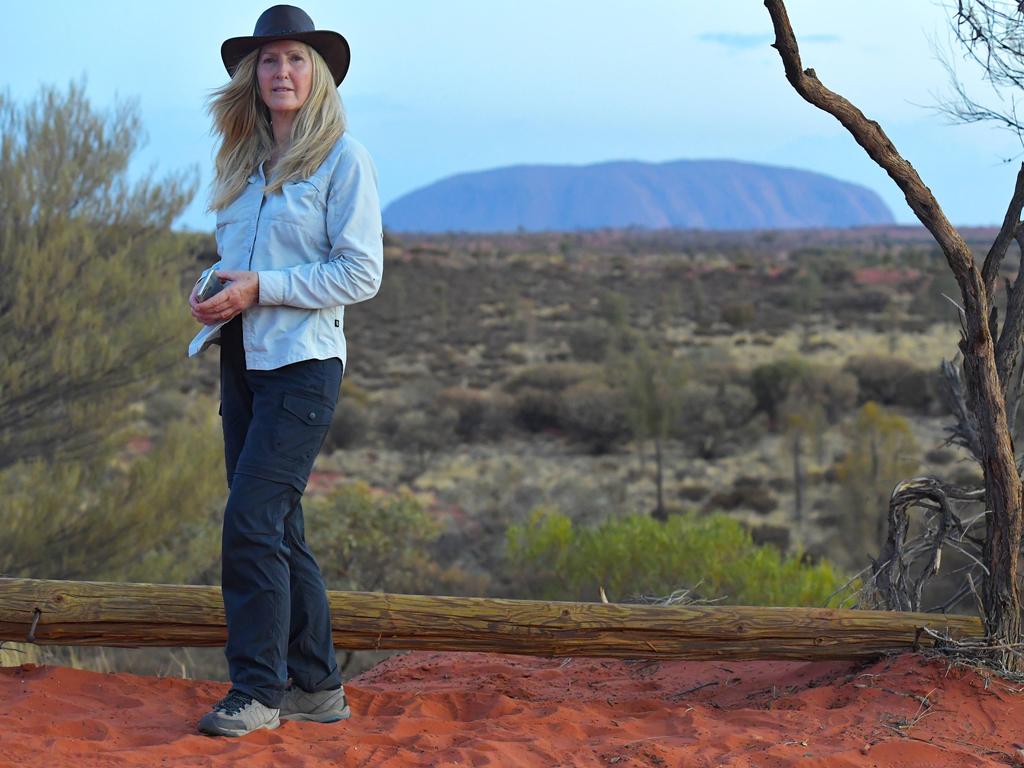Red rock awaits for us all to emerge again
Uluru remains a symbol of something more enduring than a virus.

The last cars carrying tourists slipped away from Uluru this week, a simple white sign erected on the dirt to declare the national park officially closed.
Just months ago, thousands of people crawled over the red, sculpted rock, determined to climb it while they still could.
Now, only the flies are left. The rock at the heart of Australia is isolated — an eerie symbol of a nation facing an unprecedented lockdown.
Flights to and from Uluru have been cancelled for the next two months and all but one of the hotels at Ayers Rock Resort are closing next week. The Northern Territory’s borders have been shut.
With the implementation of unprecedented measures under Australia’s Biosecurity Act, Uluru and the largely indigenous community of Mutitjulu at its base have been cut off from the outside world.
Aboriginal elder Albert Fox, chair of Maruku Arts, the oldest continuously operating indigenous tourism operator at Uluru, said the community recognised the medical crisis.
“It is not something we understand and many people are frightened by this virus,” he said,
“We have been told we must stay safe, wash our hands and we’re prevented from travelling between communities. We are determined to make sure our culture can survive this extraordinary time.”
The contrast with five months ago could not be greater. In the weeks before closure of Uluru’s climb in October, visitors from around the globe flocked, hoping to reach the 348m summit. Carparks overflowed, hotels at the resort were at capacity.
Earlier this month, in a bid to encourage tourism to the region, the federal government announced entry fees for Uluru-Kata Tjuta National Park and other federal national parks would be waived or refunded — but the spread of COVID-19 prompted deep concern from indigenous organisations for the wellbeing of remote communities, given their vulnerable population.
Maruku Arts general manager Clive Scollay said the financial impacts on Anangu, the indigenous inhabitants of the region, had been immediate. “Maruku Arts has been one of the most consistent providers of income for Anangu at Uluru and throughout the region,” he said.
“Our charter is to protect and promote Anangu culture and we do that by selling art, organising cultural tours and holding exhibitions around Australia.
“We pump over $2.5m into this region each year. With no tourists, we must now find new ways to do these things while helping protect Anangu from the major health threat to which they’re particularly vulnerable.”
While Australians struggle to adapt to the current crisis, Uluru — whose origins date back hundreds of millions of years — remains a symbol of something more enduring than the impact of a virus. Beyond our loungerooms, the world will be waiting — perhaps even healthier after an unprecedented break from humanity — when we emerge.
David Curl has lived or worked at Uluru for more than 30 years








To join the conversation, please log in. Don't have an account? Register
Join the conversation, you are commenting as Logout